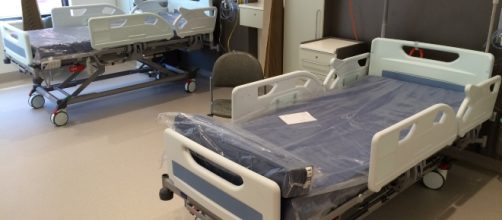According to statistics, 1 in every 5 women between the ages of 16-59 are victims of sexual abuse, with 15% not reporting sexual violence to the police. For these women, the trauma does not stop after the event and is something that can live with them for a lifetime. A new maternity clinic has been created in the UK, to help support these women through, what can be a very difficult event, triggering horrific memories. The clinic will provide women with extra antenatal support, trained midwives and psychologists. It will offer advice that has been altered for women who have been victims of sexual abuse, as well as providing the women with more of a say in how the birthing room is laid out and legal advice.
Labour can trigger memories of sexual abuse
Rape victims experience of childbirth can trigger vivid hallucinations of their attack and few of those caring for them are currently equipped to deal with the situation. One victim reported how she couldn't open her legs to let the baby out, as the setting brought back memories of when she had been raped. Pavan Amara, who launched the 'My Body Back' project, which jointly established the clinic along with Barts Health NHS trust, reported how, for one rape victim, the words of her rapist were echoed, unwittingly, in a healthcare setting. Without even realising it, healthcare professionals could be being unhelpful. It is events such as this which highlight how vital this new clinic is and the beneficial impact that it will have for these women.
Although, for many such things would be irrelevant, this can have a huge mental impact upon those who are vulnerable.
The treatment require is very different
The service will be integrated into the usual maternity ward at the Royal London Hospital but, from the moment these women are referred, their treatment will be very different.
Without having to verbalise anything, these women know people are aware of what has happened to them in their past which already will help to relieve a lot of the stress surrounding the event and leave them less vulnerable. Patients can refer themselves into the clinic and it plans to support women in other countries with one-off appointments via video calls from out of office volunteers. If the scheme is successful it could be integrated into further hospitals around the country.

